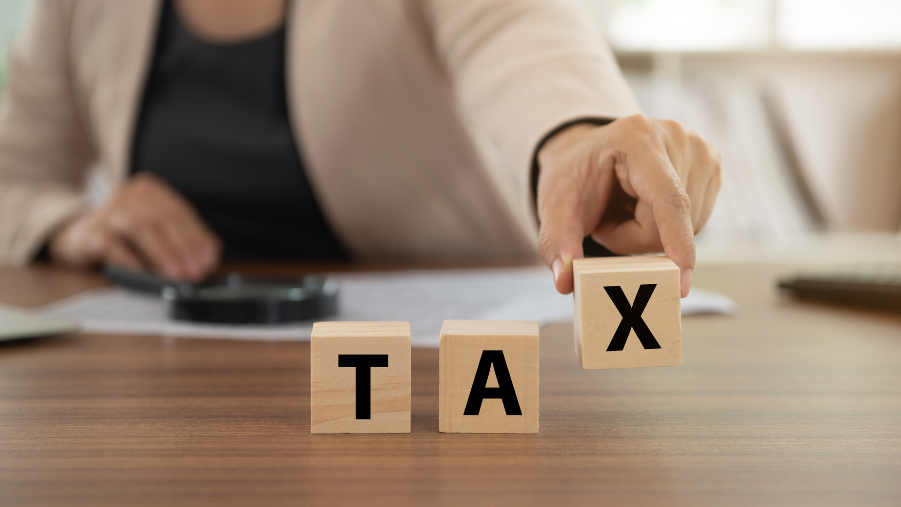Insights

Preliminary tax in Ireland is a crucial aspect of taxation that individuals and businesses need to understand. It is the tax you pay in advance of your final tax liability for the year. This payment ensures that you meet your tax obligations promptly and avoid penalties. Cronin & Co, your trusted partner in taxation services, recognises the importance of understanding and managing tax obligations to ensure compliance and efficient financial planning. In this guide, we will delve into the details of preliminary tax in Ireland, how to calculate it, and why it is essential for individuals and businesses.
Understanding Preliminary Tax
Preliminary tax is, in essence, a down payment toward your final tax bill for the year. It is a method used by the Irish Revenue to ensure that individuals and businesses meet their tax responsibilities in a timely manner. Preliminary tax in Ireland is a crucial aspect of taxation, encompassing preliminary corporation tax, preliminary income tax, and other vital components.
Why Is Preliminary Tax Important?
Paying preliminary tax is not just a legal obligation; it also offers several benefits. First and foremost, it helps individuals and businesses avoid late payment penalties and interest charges. By paying on time, you demonstrate your commitment to fulfilling your tax obligations.
Additionally, preliminary tax contributes to better financial planning. It ensures you spread your tax payments throughout the year rather than facing a substantial lump-sum payment. This can significantly ease cash flow management.

How to Calculate Preliminary Tax in Ireland
Preliminary tax in Ireland is not a fixed amount. It depends on your circumstances and financial activities. To calculate it correctly, you can follow these steps:
1. Determine Your Tax Liability:
First, estimate your total tax liability for the current tax year. This includes income tax, corporation tax, or any other relevant taxes.
2. Check Previous Year’s Liability:
Verify your tax liability for the previous tax year.
3. Know the Due Dates for Payment:
It is crucial to note the due dates for paying your preliminary tax:
- For Individuals: Preliminary Tax for individuals is due on the 31st of October. If your accounting year runs from the 1st of January to the 31st of December, you will need to pay your preliminary tax for the entire year by the 31st of October even though you may not have your full revenue for the year yet.
- For Companies: For companies, preliminary tax is due on the 23rd day of the 11th month of the accounting year. For example, if a company has year-end on the 31st of December 2023, the preliminary tax is due on the 23rd of November 2023.
4. Direct Debit Option:
If you choose to pay by direct debit, you have the option to pay 105% of the tax due for the year before the previous year, but only if that tax was not nil.
5. Calculate the Preliminary Tax:
The preliminary tax is the lowest of these three amounts:
- Ninety percent of the current year’s tax liability.
- 100% of the previous year’s tax liability.
- 105% of the tax due for the year before the previous year (only for direct debit payments without nil tax).
6. Submit and Pay:
Complete your preliminary tax calculation and submit the payment before the deadline.

It is essential to calculate your preliminary tax accurately to avoid underpayment penalties. Using accounting software or consulting with a tax professional can help you determine the correct figures for your preliminary tax payment. By following these guidelines, you can ensure that you meet your preliminary tax obligations and avoid any penalties or interest charges from the Revenue. Accurate calculations and timely payments are vital to maintaining good standing with the tax authorities.
For further details and specific calculations, it is advisable to consult the official guidelines provided by Revenue.ie.
Preliminary tax in Ireland is a fundamental aspect of taxation that individuals and businesses must grasp. It involves making advance payments toward your final tax liability, helping you fulfil your tax responsibilities promptly and efficiently. Understanding how to calculate preliminary tax is crucial to ensure compliance and avoid penalties. If you need assistance or have questions about preliminary tax, it is advisable to consult with a qualified tax professional.
For expert guidance and support with your taxation needs, contact Cronin & Co, your trusted partner in accounting and taxation services in Ireland. Visit our website for more information on how we can assist you with your tax obligations.








